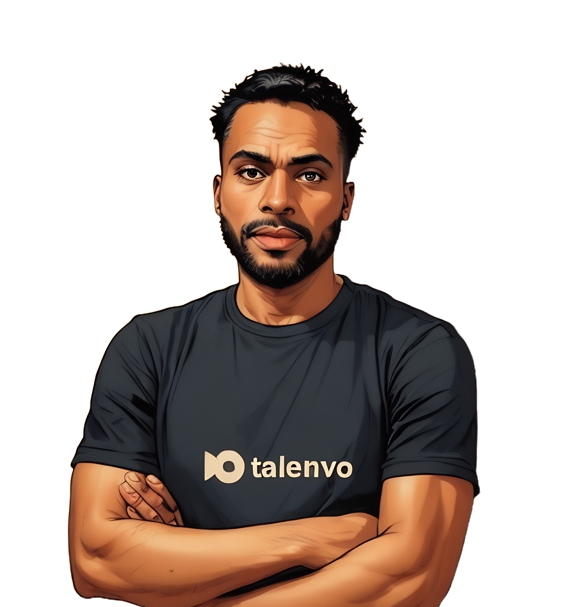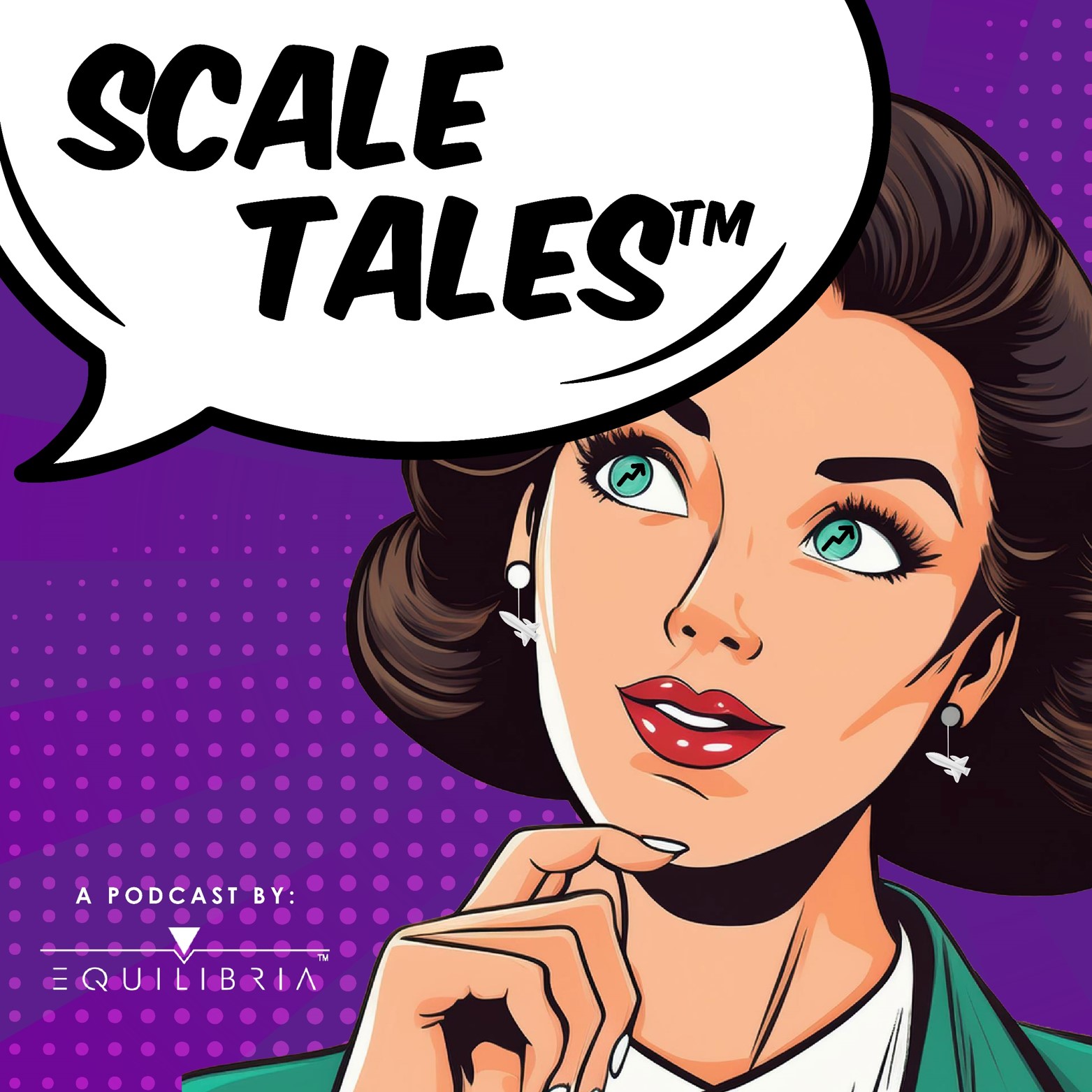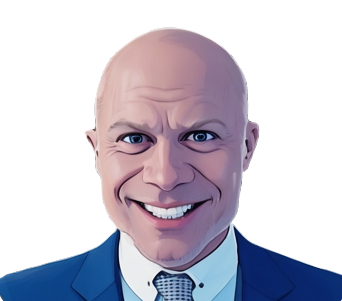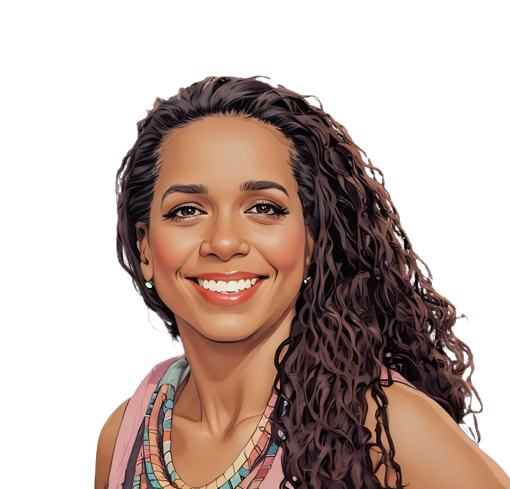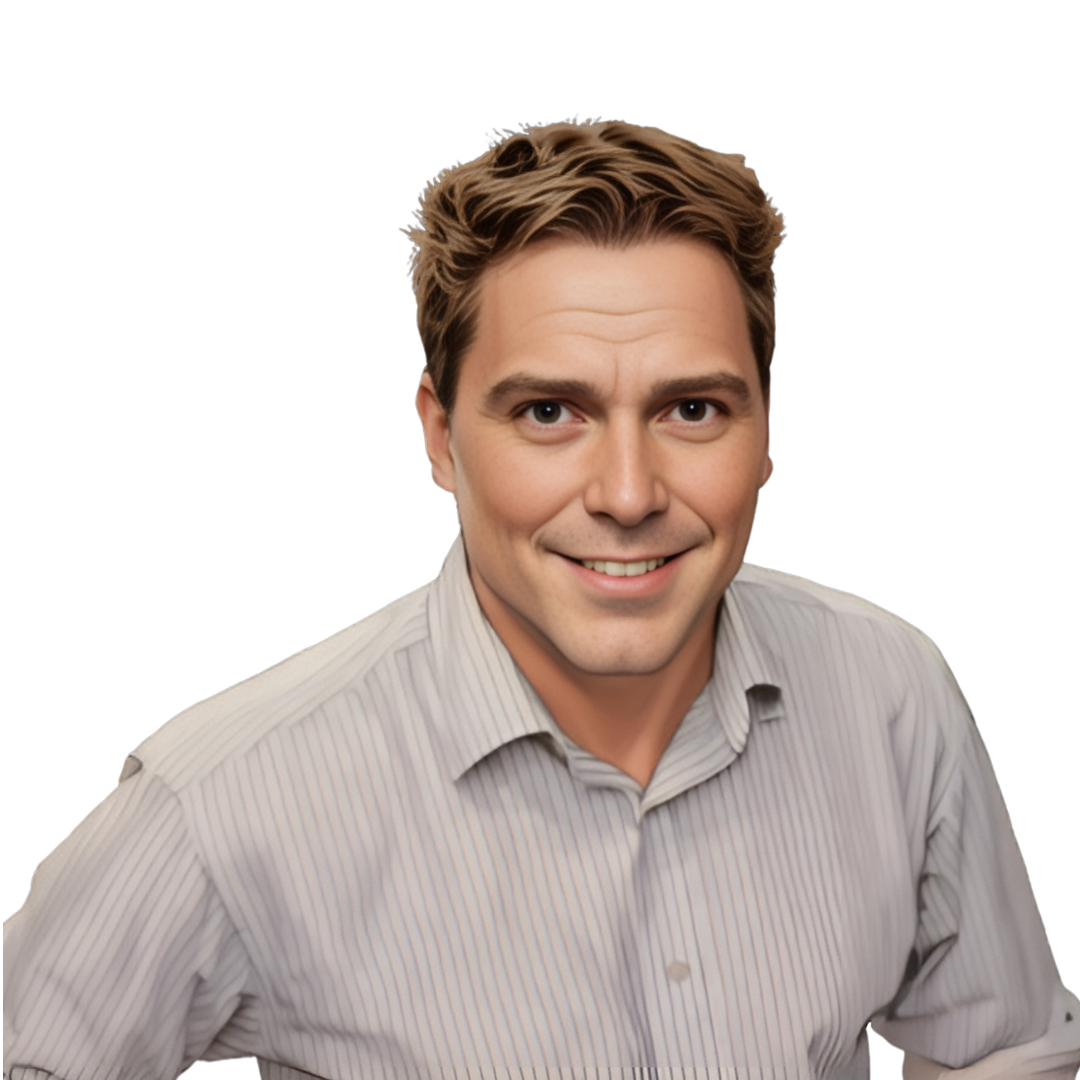Transcript
This podcast is brought to you by Equilibria, Inc. Did you know you can earn PDUs from listening to this show? It’s easy, accessible, and submitted directly to PMI. Keep listening to learn more.
Equilibria provides training to assist fast-growing companies to increase capacity and cash flow while operating at maximum performance. As a founder, leader, or project manager you know all too well that chaotic work environments aren’t sustainable. Visit EQBsystems.com to sign up for a free discovery call and start flowing today! EQBsystems.com.

“We want to see how businesses can harness the power of technology and gamification and intelligence to identify the right talent.”
Welcome to Scale Tales – the business storytelling podcast where entrepreneurs, executives and experts share firsthand accounts of those magical moments when they achieved something bigger than even they could have imagined.
I’m Alicia Butler Pierre and the person you just heard mentioning the power of harnessing technology, gamification, and intelligence to identify the right talent is someone I had the pleasure of meeting earlier this year. Someone who has become like a little brother to me. He has a big idea with an even bigger vision and mission. And it starts where humankind began – in Africa!
This is Ep. 41: How Temidayo Adefioye Scaled Talenvo to 1,500 Members Across Africa in 14 Months

Hello, I’m Temidayo Adefioye, founder of Talenvo. I’m currently in Lagos, Nigeria. And this is my scale tale.
It started on 2010 when I got an idea about solving problems and it was an opportunity for me to change the world. I studied computer engineering and this period was when I wanted to build a meaningful skills and career for myself. My friend had told me that,
“Oh, computer engineering is fantastic! You would get to work in big companies.
And all of that. I realized that it was just too theoretical for me. I spent five years in school learning theory and it didn’t really add so much to my experience. And then a friend told me that,
”Hey, there’s something called programming language. Do you want to learn a programming language?”
“What does that mean?”
“It’s just a language that allows you to communicate with computers.”
“Oh, that’s great. I’m curious. I would love to know more about it.”
And then I jumped into it. I started learning C Sharp. I built different products with C Sharp. I remember the first software I built with C Sharp. It was a CBT software. At that time there was nothing like computer-based test in school. So I built a software that allows students to learn something and then assess themselves. And when I built that, I went to the streets, started selling. I said,
“Hey, there is a software in town! You can assess yourself on your computer. You don’t have
to read big textbooks and all of that.”
And then they said,
“Oh great, how much was it?“
And it was just very interesting. So that was the first encounter with entrepreneurship. I didn’t know I could do that. I had seen myself as a nerd because I was just a software engineer building and shipping products behind the scenes.
Temidayo didn’t know it at the time but that Computer-Based Testing (or CBT) that he built and promoted to other students would serve as a steppingstone into what would eventually become a full-time career as an entrepreneur. But first, he had to graduate. And once he did in 2014, he was wide-eyed and eager to enter the real world as an official software engineer. There was just one problem. A major problem.
I needed to build a career, get a job for myself. What’s the way forward from here? I got into the job market and I needed to prove experience. And that was the hardest part. I needed to prove to people that I could do the job. And they were asking for one year, two years of experience. It was strange to me.
I needed an internship and there was nothing like that for someone like me. I mean, I’d built different personal projects in school, but that was not enough. They were asking for practical work experience from companies and all. A company had a bet on me. They decided to hire me and then paid me fifty thousand naira. At that time I was excited about it and they allowed me to build and build. And then over time I was able to, you know, navigate my career, climb the ladder one step at a time.
To put this into perspective, 50,000 Nigerian Naira (NGN) is worth about $33 USD and 24 British Pounds as of the date of this recording. This is what Temidayo was making per month. Suffice it to say, the struggle was real, and he was not alone in that struggle.
I had a friend that reached out to me at the time this guy was a first-class student. He had all the theoretical knowledge and all, but there was something missing, the practical experience.
So this guy was frustrated, he was tired, just looking for opportunities. Nobody could, you know, bank on him. They couldn’t help him because this guy didn’t have enough experience. All of these personal experiences made me realize there is something missing in the talent space, or let me say in the career space. And that’s the work experience gap. We have a lot of brilliant people in Africa.
We have fantastic guys, fantastic talents, but sometimes they get rejected because they don’t have the relevant skills to prove that they are competent for the job. And that was the first time an idea came into my mind back then, it was Talent Nest. I thought, it’s a nest of talents, you know, a place where you can equip people, equip talents. So that was where the inspiration came from, this is a nest.
I could empower people. I could provide them with the relevant skills that would enable them to succeed. That was the first time I had that idea. But I didn’t start immediately because I saw myself as someone who didn’t have the leadership and the capacity to build a team. I didn’t have the experience to run a startup.
Temidayo may not have had the experience at that time to run a startup, but he certainly had the passion, and…a bankable idea. By this time, the year was 2020.
So I said, hey, I think I need to go for one more job or two jobs so that I could learn from that company. I wanted to know more about how they are able to execute their processes. I wanted to learn more about the mistakes, the failures and how they were able to navigate. So I moved to a different company and then I was the head of mobile development. I was learning from all the decision making, the stakeholders, conversations, different things that would enable me to build successfully.
And all that first-hand experience of being in the trenches at another company paid off. Four years later, in 2024, Talent Nest became Talenvo and Temidayo was ready to start building a product around this idea and introduce it, not just to Nigeria, but to the world.
I waited because I needed that experience, I needed the growth, I needed exposure. And after I’d done that, worked with a company for like three and a half years, I decided that, okay, I think it’s time for me to build. It taught me something that you don’t have to jump into an idea immediately and say, well, I just want to go to the market and build.
The hardest part of any startup is not the ideation. Idea is the easiest thing when it comes to building a startup. You can come up with a thousand and one ideas, but the question is execution, having the right team, scaling. All of these things, if you don’t have the knowledge, you keep failing and failing repeatedly. And I didn’t want to find myself in that situation. I wanted to learn from people, I wanted to learn from a real environment. And this is a very crucial thing for me because I’m someone who ideates a lot. I think about different ideas. I have like an idea bank.
So there’s always the urge to want to get to the market immediately, build and just go to the market. But at that time, Talenvo was very special to me because I had experienced this firsthand. I had friends that experienced the same thing repeatedly. I could not help them. We’re just in the same boat. So we’re all struggling at that time.
I feel that it’s very important for talents and founders to realize that having an idea is fantastic. But you have to ask yourself, do you have what it takes to build? Do you have what it takes to ensure that you take that idea to production and beyond production to scale? Do you have the right network? Do you have the right skills to be able to interact with humans?
In a moment of introspection, when Temidayo asked himself those same questions, he realized the answer to all of them, was…yes!
The business of startup is at first dealing with humans. You are dealing with people. If you can hack this successfully, you can build anything. If you can handle people well, these guys will treat your vision well. If you don’t have the skill set to manage people, you can have a fantastic vision, but people will frustrate you. So I knew that the vision was very crucial for me. I needed the right people, I needed the right environment.
To his credit, Temidayo also knew he needed the right business infrastructure. That is, a system for strategically linking the people, processes, and technologies to form a foundation for sustainable growth and scale. The first person he recruited to join him was his friend, Iboro, who now serves as Talenvo’s Engineering Manager.
I said,
“Hey, I have an idea. I don’t have a product yet. Can we build this thing in just a few months, maybe three months thereabouts?”
At first I wanted to build a landing page. He was the first person I reached out to and I spoke to him about the vision. He caught the vision and he loved it from day one. From there we built the first landing page, the first MVP. It was very complicated platform. I knew that we built a complicated platform. It was hard for me to figure out.
The idea was great for us, but then how can we ship this kind of product and then people would understand it? We realized that people were struggling with navigation, moving from one functionality to another. And then I said,
“Dude, let’s have a meeting, we need to discuss this. How can we make this better?”
So I brought in a Growth Manager, a Product Manager as well. And then we had a conversation around the product, the end-to-end process. She wrote a product requirement document for us. We made it more simplified. We had to remove some functionalities just to make it very simple. All of these experiences, I realized that you have great idea, but if you’re not listening to users or customers, you’re just wasting your time.
So from day one, I told every single person on my team, “From now henceforth would have to pay attention to our customers, listening to customers.” We got like a very small set of people to try out the product and give us feedback. Some of them stayed and some ran away because they felt that it was just too chaotic for them. So we started reaching out to them via emails just to have a feel of what they think about the product. And I was just getting different feedback.
”I could not navigate this. I could not find this feature. I couldn’t find this button. This one was just not clear for me. There were bugs here.”
I’m like, we haven’t even launched yet. Before launch, we had done the beta testing, the alpha testing. I mean, having bugs here and there, that was the first proper product as a founder. But I’m grateful that I had people around me. They were very supportive. The days where it was frustrating for me personally, I wanted to just let go the whole thing. Like, no, this is a mess. These guys were still there for me, the engineering manager, Iboro, Tosi, and the early founding team members, I mean, they were just very supportive.
Despite the fact that they had a very busy schedule at work, they still gave their best to it. It just emphasizes how it’s important to value the network or value people. As I said earlier, people are the core of any successful product. If you see a successful business, then you know that the people are the driving force.
Another major part of that driving force behind a successful business is leadership. Combined, Temidayo and his small, but mighty team’s hard work paid off. By May 22, 2024 they officially launched Talenvo!
That was on a Wednesday. And we’re excited about it. Oh, finally we’re out! You know, that excitement was there. And a few days after, I got sad news from different users that they’re experiencing bugs. I said, not again. We’ve tested this product repeatedly. What’s going on, guys? What’s going on?
What was going on? After all the building, testing, iterating, and improving, users were reporting issues. You’ll find out why this happened and how Temidayo and his team banded together to save Talenvo before it became a casualty, after the break.
Are you a certified Project Management Professional? Just imagine, you can literally listen and learn while you earn credits. Yes, even while you’re taking a long walk, driving to or from work, even while you’re on an airplane. The good thing about our podcast episodes is that you don’t have to watch them in order to earn your PDUs.
In three easysteps – Visit ScaleTalesPodcast.com, sign up for a membership, take a short quiz and we’ll submit your credits to PMI. Yes, it’s really that simple and all at a price that makes this information accessible wherever you are. No gimmicks, no games. It’s really that simple! ScaleTalesPodcast.com.
We’re back. Before the break, you met Temidayo Adefioye, the energetic software engineer who, after patiently working to learn the ins and outs of running a startup, cobbled together a team of friends to build Talenvo, a software destination to connect African talent with companies worldwide.
They went through the alpha and beta testing rounds and gathered intelligence to assist them in making an even better product. After all the testing and one-on-one conversations with users, Talenvo launched amid fanfare and high anticipation, but it was short-lived. There were still issues. Software bugs to be exact. But why?
Here’s Temidayo.
We have gone live already. Why are we having bugs? And then I realized that it’s just user behavior. And that’s expected, right? For any product that you launch, there will always be some interactions and it’s expected to have behaviors like this. So I didn’t put pressure on my team. I didn’t lash out on them that you guys have built a very crappy product. No, because it’s understandable that once you launch a product the first time, there will always be glitches because it’s just user behavior and interactions. That’s expected. So we started iterating, resolving issues, changing, moving things around, moving buttons and all of that.
And sure enough, their user base started growing.
And then from there we started getting our early users from 50 users to 100 to 200, and then we keep growing like that and then to five hundred to a thousand. And we just saw that there was a significant growth. And I told my team,
”We are growing. We need to build a community around this.“
And that’s another thing that I cherish a lot. We are community centric. We ensure that we build a system that can outlive us. We are building a product that it’s not just tightly coupled around the founding team. If we have more people join us, they will understand the vision and then they run with it.
Building a community around your product is very fundamental. You want to allow your users to have a feel of what you’re doing behind the scenes. You’re not just too strict with some sort of rules, some guidelines. I mean, users cannot even talk to the founder or the CEO. They can’t talk to your PM. No! We had an open-door policy where users literally had our WhatsApp numbers so they could reach out to us, they could call us for feedback if they have any difficulties.
I would literally be on the call doing customer support for users and it was actually fun to do because I heard from them firsthand. Being able to get your users to be obsessed about your vision first, and then maybe your product. The vision is very important. There is a vision in place and then you’re able to communicate it to everybody and then you tell them that this is a community.
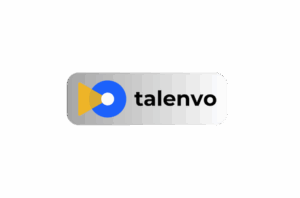
You are not a user here. You are a committee member. You are a part of the mission. And it’s bigger than just using the product. You are also an advocate of the mission itself. And that’s
what we’re doing right now. We’re just a year and people already understand our vision. They know what we’re doing at Talenvo. That it’s beyond just helping people land a job is that when we help you land a job, you can help other people as well. You can also impact lives.
You can also provide environments for people to thrive. You are not just a talent, you are also an individual who is vision-obsessed. Your forward thinking and, and all. It’s where we are right now ss not just it’s about talents and we’re very intentional about our growth. We are very intentional about the way we help people.
When it comes to building a product nobody cares about the technology. That’s the first thing. Users don’t care. I was having a conversation with our engineering manager back then, what do we need to build this product at that time? They told me different things about languages, frameworks and all of that. I said,
”Which one does the work? which one solves the problem for us?”
Because that was the priority for me. I’m not one of those people who is always making all the noise around, oh, I’m a C Sharp fan. I’m this technology fan. I’m an AI advocate. I mean, there will be more technologies in the future. My role is to ensure that we use the right tool to build. I’ve realized that some founders I’ve spoken to in the past, they are more particular about technology and they spend less time working with the users, listening to the users.
They spend all the time trying to build the best products with the best technology in the world or the latest technology in the world, something trending, and say, Oh, we have the
best tech in the space. No, having the best tech is not enough to retain a customer or to retain a user because someone else would literally use the same technology to build more fantastic products and then kick you out of the market.
So my rule of thumb is, while I understand that you want to ship quality products, you want to ship with very solid tools, we can’t spend all the time trying to debate on which tool is the best. I would rather spend all the time listening and talking to the users or to the customers.
And it’s this mindset that led Temidayo to an idea to help him connect further with Talenvo’s community members.
Earlier this year, I had a meeting with my team. I said, “There’s something I want to do. I wanted to have conversations with our early users one after the other.” So what I did was to create like a calendar.
And then we sent a mail to every single person, one by one. And they scheduled a meeting with them. I said,
“Okay, I want to have a talk with you, just want to have a conversation with you to understand what you think about Talenvo, your perception about Talenvo.”
And just wanted to learn more about them. And my team members thought, “This guy, you’re going crazy. This is a lot of work!”
But for me, I said,
“I just want to talk to them.”
I saw that we had gotten to a point where I needed to have a conversation with these guys beyond our WhatsApp chat and all. So I started learning from them different things. And they started telling me, how our product is solving the major problem in their lives, the fact that we are not too rigid, right? They saw the open door policy.
Some of them said it was very easy for them to have a conversation with our PM, our committee manager at the time. They knew that this product was not built by AI agents.
People built this thing and they’re right behind the monitors or behind the keyboards, right? So the message here is sometimes you just have to speak to your customers, like have calls with them, just randomly select the most active users and then the ones who have been away for a while, just speak to them and just hear what they have to say about the product.
Firsthand data is arguably the best type of data. By speaking to community members directly, Temidayo and his team not only learned more about their members and their needs and concerns, but also opportunities to make future iterations and improvements. As customer, member, or user bases grow, many Founder CEOs abandon this type of outreach.
It’s usually no longer feasible because of the volume. But it’s possible to still stay plugged in through events like townhall discussions. Temidayo has shared important lessons so far for any leader or manager to consider. Lessons like building a team around a shared vision and directly interacting with customers. And, he has even more to share.
Another thing I’ve learned as well is not to be too carried away by the vision itself. I don’t want to speak to a user and say,
“What do you think about our fantastic products?”
I mean, of course they will tell you that it’s fantastic because you already said it. So it’s not a good way to get feedback.
“I just want to share. What do you think is not working here? What do you think about this? How do you think we can improve? What do you suggest? “If I give you an opportunity to become the founder of this product in one day, for one day or three days, what would you do differently?”
I put them on the spot like that. I say, what would you do differently? Tell me if you think that we’re not doing it right right now, what do you think you would have done differently to scale this product? And then you start sharing different things. You guys are doing fantastic work already.
Maybe you want to remove this, or you want to pay more attention to this one. And I’m like, “Wow, great!” That’s a good perspective, point of view. It gave me the lessons I needed for
that time because it was too early stage. We’re just trying different things. It’s a different niche. Like the kind of products that we’ve built is not a very popular approach, right? It’s not
something that we can literally copy and paste and say, guys, go and check this platform out and see how they’re doing it.
We are trying to create a new market, right? A lot of competitors that we have right now, they talk about how you can join their program, you do one or two projects and then you graduate. For me, I feel two projects will never be enough to become highly skilled. It is when you do something repeatedly that you would be able to gain mastery. It is not in one or two projects. And that’s what a lot of competitors are doing.
They want to set a time to it and say, just do this in six weeks, in eight weeks you’ll become a full stack developer. Great marketing tactics, right? But for me, I feel that that’s not enough. I have trained over 20,000 learners around the world and I know that it is not enough to just learn something, do one or two projects and then go to market. For us, we want to build a culture.
That’s what Talenvo is all about. A culture, a new tribe, a community. A community, of people who are obsessed with learning. We want to create an environment for talents around the
world to enable them build consistently. Do 10 minutes, 5 minutes, 20 minutes, repeat that for six months, for a year. And then you see the difference. It is the consistency that brings the result, right? Not the one off.
As you can tell, Temidayo is very passionate about Talenvo and its potential to radically transform the way students straight out of University can consistently build practical experience. Not just in Nigeria, but across the entire African continent and beyond.
We want to change the narrative of talent having to spend their money on learning something, building three projects and then a recruiter will reach out to you and say,
“Oh, I love your CV!”

That’s not enough. In Africa right now, unemployment is rising every single day. How do you solve that? It’s very simple. You have to create an environment for them to thrive. You have to create an environment for people to build.
And then not just build to give them the visibility that they need, right? We want to be a voice for African talents. That’s another mission for us. Where when let’s say companies come to our platform, they can trust the talents that we have on the platform. That’s very, very important. It’s something that we’ve seen a gap in the ecosystem and we’re trying to fill that gap. We noticed that it’s hard for African talents to just reach out to foreign businesses, and then they get hired just like that.
No, they do a lot of work just to get that opportunity. I will feel that with our influence, with our vision, the mentality that we have, the structure that we have right now, we’ll be able to
help people stand on behalf of these people, close deals with them, get clients to believe in them, create a system where we can do the handshake, connect the talent to the business owner. And then there is the convenience side of things where it’s just very easy for foreign businesses to access African talent.
We have amazing talents from engineering to sales to business development. There are a lot of people who are very interested in adding value and solving problems. And that’s the thing.
As a talent, your job is to solve problems, nothing more. We want to see how businesses can harness the power of technology and gamification and intelligence to identify the right talent.
And that gamification combined with cutting edge programming technology and AI is what makes Talenvo unique compared to their competitors.
Most companies are using ATS, that’s Application Tracking System to weed out high quality talents because the ones that are not even competent have used AI to generate fantastic and
pretty CVs because they know that they don’t have what it takes to join the company. They would rather invest their time making the CV look great. And the guys who can get the work done are too busy crafting CVs.
They are working around the clock. And you don’t expect these people to have the best CV in the world. So, we want to see how we can gradually replace that approach and find a way to provide a more simplified way or more simplified approach for recruiters and business owners to identify high quality talents. It’s like I told somebody recently, I said the kind of mission that we have is akin to the way football academy academies operate, right?
For our American listeners, keep in mind that when Temidayo says “football,” he is referring to “soccer.”
You don’t see a football player share their CVs or cover letter online or Ronaldo or Messi, they say, ”I have my CV. I’ve played with Barcelona before, I played with…” No, it is what
they’ve done, you’ve seen their work, you’ve seen their competency on the internet. And for that reason you can literally have them on your team immediately”
In other words, Talenvo gives talent a chance to showcase their work, not just provide a CV. It gives talent a professional voice outside of social media platforms.
It’s the narrative that we have to change, especially in the age where AI is changing everything for us. You would start receiving doctored applications, manipulated CVs, manipulated cover letters, and you would just spend all your time reviewing hundreds and thousands of CVs. We have Talenvo, where you can, by just looking at the stats of the player, I call them players, the stats of the talent, you can tell that this guy is ready to join my team right away.
We’re starting with Africa, but of course we’ll scale to other regions. But right now, the priority is for us to expose African talents to global companies and then hire people at a very affordable rate. We are very friendly people. Our costs are not on the high side because cost of living is decent here. So we believe that a lot of businesses would benefit from this kind of service.
And this brings us to a sensitive, but very real concern about working with developing nations, Nigeria in particular. It is currently the sixth most populated country in the world with nearly 243 million people. It’s a country steeped in tradition, full of history, cultural vibrancy, and well-educated people. Over 600 thousand students graduate from universities across Nigeria each year.
As Temidayo mentioned, this poses a strain on the local labor market. There simply aren’t enough jobs to absorb this local talent. Unfortunately, many of these students leave the country to pursue other opportunities. Those that stay either accept lower-wages, lower-skilled jobs, or…they may turn to the underworld of online scamming. I asked Temidayo if he could speak on this very real concern that companies in other countries have of this persistent stereotype of Nigeria being a haven for scammers.
We understand that a lot of companies have reservations around quality. What I will tell you is that Talenvo was built by Nigerians, 100%. We didn’t outsource a, a single part of the feature. We didn’t outsource anything to a foreign talent. Someone asked me during Qatar Web Summit. He saw the interface, said,
“My goodness, did you hire somebody to build this? Did you hire a foreigner to build this for you?”
“Why did you say that? This product was built 100 by locals.”

If we can have a very fantastic product like Talenvo built by locals, I mean, I can tell you for free that we have high quality talents here. They can build anything because they have great problem-solving skills.
Nigeria is a country of over 200 million people. We can’t make assumptions based on just individual experiences. The same way people have had encounters with, you know, scams. People have also had fantastic people work with them in the past. And so the point is this – meeting the right people, right? Every country has their troubles or their problems to deal with, right? Every nation would definitely have something they’re struggling with.
So for Nigeria, the fact that people have experienced scams does not mean that we have a lot of scammers here or most of the Nigerian youths are scammers. No, that’s not it. It’s the fact that reaching out to the right people, it’s very important. Hiring the right people is very important. That’s what we’re doing here as well with Talenvo, that you can meet the right people.
The right guys are here building. I’ve seen foreigners share feedback with me about how they hired in Nigeria, and then it’s been an amazing ride for them. I’ve seen people who have climbed the ladder from just an intern to head of engineering in a very reputable company abroad. So, it just tells that Nigerians have a knack for problem solving. We call ourselves hustlers, right? We hustle. But it doesn’t mean that every single person in Nigeria has the propensity or the tendency to be a scammer.
For someone like me, I’m here solving problems trying to change the world. I have impacted over 20,000 people, right? I’ve seen a lot of people like myself do the same thing. I have them in my network. I’ve seen people who are very passionate about helping foreign businesses. So, that’s the scenario where because of one or two or three experiences, people just find a way to amplify it and just say, hey, because I’ve experienced this with 1, 2, and 3 for that reason.
That’s less than 1% of the population. So that’s not enough to make a conclusion. It’s just like training an AI on data sets, and then the only thing you have is just five data points. And then you want the AI to make a conclusion for you. No, you need billions of parameters, right? Billions of data points to make that informed decision. Which is why you see that there’s no AI products that would go out and they’ve not trained with enough valid information.
And that’s the thing about Nigerians as well. I’ve not seen anybody come to us and say, “Oh, I’ve had this experience with over a million youths.” No, there are a lot of young people here who are very passionate about just solving problems and then adding value.
And they are very honest, they are decent with their work. And that’s the thing. As I said before, Talenvo was built by Nigerians. And interestingly, these guys went as far as taking a cut. They love the vision and they say,
“I’m happy to do this thing without having to take like 100% of my usual pay.”
We have a lot of very decent people. But then the question is, where are you looking to? Where are you finding the talent? Where are you finding people? For me, Talenvo has to be that place where you can easily access talents so that you don’t fall into the wrong people in the wrong hands and all of that. So yeah, just my thoughts.
When you think about it, it’s a story we all know too well. Where the actions of bad actors are amplified across traditional and social media and then, before you know it a group of people are unfairly stereotyped and painted with a broad stroke. So thank you for this reminder, Temidayo. I must admit, I had to work past my own stereotypes about working with Nigerians. In fact, our audio editor for our podcasts is in Nigeria and we’ve worked together for about five years!
I applaud Temidayo’s efforts. He’s worked hard to build his startup, his team, and his product. And it shows – Talenvo is steadily gaining new members.
Right now for our personal community we have about 1,500. But then we have partnerships with other businesses, schools. Then these guys have over 10,000, community members actively engaging the platform. The way it works is that we expose the technology to schools. Boot camps so that they can help them build hands on experience, while they are still in school
We have partnerships with other communities where these guys have as high as 30,000 active community members. So these guys are already building communities on our platform as well.
Think of Talenvo’s membership model as concentric circles. The core circle consists of their personal community of 1,500 members. One of the outer circles represents their partnerships with different schools to upskill their respective student base. Once these students graduate, they will have the academic and work experience required to attract the right businesses.
Another outer circle are businesses that are seeking highly skilled talent at a lower, yet still competitive labor rate compared to countries like the U.S. and the U.K. Nearly 14 months after their launch in 2024, Talenvo has successfully matched about 10% of their core member base of 1,500 people.
We’ve rolled out different initiatives. We’ve done Open Day where we just allow our talents to pitch live and then we just do the matching virtually. We’ve gotten feedback from people even though some talents will not get back to you. But we’ve received, firsthand, feedback on every Open Day that we run,
“Oh, somebody reached out to me, the founder, he wants to build a product and then I just got an engagement with him. He got hired on a contract or a full time.”
We also have an initiative called Workfront Summit. Just another opportunity for us to expose our talent. We’re growing, we’re trying to expand. Definitely this year we want to match as many talents as possible, that was why we rolled out the new products at Rapisolve that it’s easier for talents to gain more experience because that’s one of the biggest issues that we’ve had.
We have clients that are willing to hire, but they want to see the hands on. So we want to see how we can help these talents upskill as fast as possible. Unlike what we used to do where people do projects for like 10 days, 14 days now we want to compress the time so that they can do short form tasks something that you can finish in 20 minutes. And they just do that repeatedly across different skills, across different industries. So that way it’s easy for us to match them based on the metrics. So, yeah, we are making progress. Really.
And I must tell you, what Temidayo and the Talenvo team have built is pretty cool! And I’m not saying that just because he’s a friend. He gave a demo of Talenvo and I was blown away by the different mechanisms in place to teach people new skills while at the same time helping to match them to potential employers. And guess what? You can see that demo too!
But the only way you can do that is by logging into our membership portal. I’ll share more details on how you can do that in just a bit, but for now, Temidayo, my brother, my friend, thank you for coming on to share more about Talenvo and the incredible journey that led to its creation. We wish you nothing but the best!
Thank you very much for having me. I’m honored to be here.
Here’s a recap of some important lessons learned from Temidayo as he built, tested, launched, and is currently scaling Talenvo.
- Build a product out of an observed need, not a hunch, because this is an untapped market with a problem that you can solve.
- Soak up as much knowledge as you can while working at a job. Observe and take notes on things like managing large and complex projects, troubleshooting problems, and communicating with large teams.
- Build a prototype or an MVP of your idea. The stages are typically: idea > build basic model > alpha test > beta test > launch > implement continuous and incremental iterations and improvements using an Agile approach.
- Don’t just build a user or customer base of your product. Build a community!
- Make yourself accessible to your community. This is something I noticed the founder of Clubhouse did. As an early adopter, it made me want to support him even more. No matter how hard you try, you cannot and should not avoid talking to people.
- Let your community know that they are not just users or customers. No, they are committee members, worthy of respect and counsel regarding how to improve your product or service. You may even consider them as stakeholders, and, if you work in a company that is public or is considering going public, as “shareholders.”
- Having the best technology is not enough to retain customers.
- In a previous episode with Alexander Harmsen, he mentioned asking his beta testers, “What would you pay for this?” Add another question to ask based on what Temidayo did. Also ask your testers, “If you were in charge, what would you do differently?”
- When building a list of your initial testers, obviously include potential customers, but also include other developers as well as people who are in that vertical. For example, with our LMS, we asked not only PMPs to test our system, but also Instructional Designers, Software Developers, and Educators.
- Learning is continuous. Mastery requires more than passing an exam and gaining a certificate or degree. You must demonstrate your ability to do the work and do it well.
- Seek strategic partnerships. They are a great way to scale your impact, reach, and revenue.
A special thank you again to Temidayo Adefioye for sharing his scale tale with us. You can learn more about him, Talenvo, their Workfront Summit, and how to better connect with African talent in this episode’s show notes. Visit ScaleTalesPodcast.com. Again, that’s ScaleTalesPodcast.com.
You can also see Temidayo give a demo of Talenvo. That requires membership, which starts at $9.99 per month for unlimited access to extra content, special offers, and the ability to earn PDUs and continuous education credits. Click the link in the show notes to sign up for a membership today!
Thank you for Listening! If you learned something valuable from this episode, please leave us a five-star rating and review wherever you’re listening.
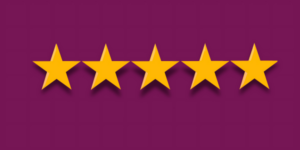
I’m Alicia Butler Pierre and I produced and narrated this episode. Additional voiceover by Clarence Levy III. Audio editing by Olanrewaju Adeyemo. Music production and original score by Sabor! Music Enterprises. Video editing by Gladiola Films. Show notes by Hashim Tale.
You’ve been listening to Scale Tales, a podcast by Equilibria, Inc.








